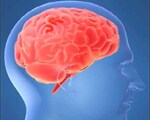Processing multiple streams of information from different sources of media is a challenge for the human brain.

Media multi-tasking includes doing one or more activities at once - emailing, web-surfing, writing on a computer, watching TV, texting, playing video games, listening to music or talking on the phone.
Researchers studied 262 American college students to find out the difference in information analysis between chronically heavy and light media multi-taskers. The participants were asked to fill a questionnaire to determine how often and how much they multi-tasked. Then they were divided into two groups heavy media multi-taskers and light media multi-taskers. Students were then asked to complete a series of tests that measured cognitive control, or the process by which the brain directs attention, decides where to allocate mental resources at a given moment and determines what's important from the many bits of information being received.
In the first test, students were exposed to an array of rectangles and asked to determine how the orientation of the targeted red rectangles had changed while ignoring distracting blue rectangles. The heavy multi-taskers had a harder time filtering out the useless information. The heavy multi-taskers couldn't help paying attention to the blue rectangles and were actually less successful in remembering the orientation of the red rectangles.
In another test, students were asked whether they were seeing an even or odd number or a vowel or a consonant when shown a letter and a number simultaneously. A prompt asked students to answer either the letter question or the number question. It was found that frequent multi-taskers took longer to answer than lighter multi-taskers, indicating they had a more difficult time switching between numbers-based and letters-based tasks.
The findings suggest that students who did the most multi-tasking were less able to focus and concentrate - even when they were trying to do only one task at a time. The students at the upper end of the media multi-tasking spectrum performed more poorly on all the tests than those who multi-tasked the least, even though the students had similar overall intelligence.
The researchers concluded that the human mind is not really built for processing multiple streams of information. The ability to process a second stream of information is really limited. The average person has difficulty performing two tasks as well as he or she would have performed one task and being focused on it over time.
DoctorNDTV is the one stop site for all your health needs providing the most credible health information, health news and tips with expert advice on healthy living, diet plans, informative videos etc. You can get the most relevant and accurate info you need about health problems like diabetes, cancer, pregnancy, HIV and AIDS, weight loss and many other lifestyle diseases. We have a panel of over 350 experts who help us develop content by giving their valuable inputs and bringing to us the latest in the world of healthcare.












